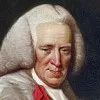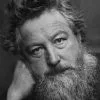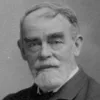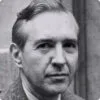Be temperate in wine, in eating, girls, and sloth;
Or the Gout will seize you and plague you both.Benjamin Franklin (1706-1790) American statesman, scientist, philosopher, aphorist
Poor Richard (1734 ed.)
(Source)
Quotations about:
exercise
Note not all quotations have been tagged, so Search may find additional quotes on this topic.
DAWN, n. The time when men of reason go to bed. Certain old men prefer to rise at about that time, taking a cold bath and a long walk, with an empty stomach, and otherwise mortifying the flesh. They then point with pride to these practices as the cause of their sturdy health and ripe years; the truth being that they are hearty and old, not because of their habits, but in spite of them. The reason we find only robust persons doing this thing is that it has killed all the others who have tried it.
Ambrose Bierce (1842-1914?) American writer and journalist
“Dawn,” The Cynic’s Word Book (1906)
(Source)
Included in The Devil's Dictionary (1911). Originally published in the "Devil's Dictionary" column in the San Francisco Wasp (1881-12-02).
Now a cat will not take an excursion merely because a man wants a walking companion. Walking is a human habit into which dogs readily fall but it is a distasteful form of exercise to a cat unless he has a purpose in view.
Carl Van Vechten (1880-1964) American writer and photographer
The Tiger in the House: A Cultural History of the Cat, ch. 2 (1920)
(Source)
A rich man cannot enjoy a sound mind nor a sound body without exercise and abstinence; and yet these are truly the worst ingredients of poverty.
Henry Home, Lord Kames (1696-1782) Scottish jurist, agriculturalist, philosopher, writer
Introduction to the Art of Thinking, ch. 2 (1761)
(Source)
Yet I think that to all living things there is a pleasure in the exercise of their energies, and that even beasts rejoice in being lithe and swift and strong. But a man at work, making something which he feels will exist because he is working at it and wills it, is exercising the energies of his mind and soul as well as of his body. Memory and imagination help him as he works. Not only his own thoughts, but the thoughts of the men of past ages guide his hands; and, as a part of the human race, he creates. If we work thus we shall be men, and our days will be happy and eventful.
William Morris (1834-1896) British textile designer, writer, socialist activist
“Useful Work versus Useless Toil,” lecture (1884)
(Source)
Printed in Signs of Change (1888).
Ability is not something to be saved, like money, in the hope that you can draw interest on it. The interest comes from the spending. Unused ability, like unused muscles, will atrophy.
Eleanor Roosevelt (1884-1962) First Lady of the US (1933-45), politician, diplomat, activist
Tomorrow Is Now (1963)
(Source)
To ensure moral salvation, it is primarily necessary to depend on oneself, because in the moment of peril we are alone. And strength is not to be acquired instantaneously. He who knows that he will have to fight, prepares himself for boxing and dueling by strength and skill; he does not sit still with folded hands.
In general, every evil to which we do not succumb is a benefactor. As the Sandwich Islander believes that the strength and valor of the enemy he kills passes into himself, so we gain the strength of the temptation we resist.
Ralph Waldo Emerson (1803-1882) American essayist, lecturer, poet
“Compensation,” Essays: First Series (1841)
(Source)
The virtues, like the body, become strong more by labor than by nourishment.
Never learn anything until you find you have been made uncomfortable for a good long while by not knowing it; when you find that you have occasion for this or that knowledge, or foresee that you will have occasion for it shortly, the sooner you learn it the better, but till then spend your time in growing bone and muscle; these will be much more useful to you than Latin and Greek, nor will you ever be able to make them if you do not do so now, whereas Latin and Greek can be acquired at any time by those who want them.
When the spirits are low, when the day appears dark, when work becomes monotonous, when hopes hardly seems worth having, just mount a bicycle and go for a good spin down the road, without thought of anything but the ride you are taking.
Fantasy is an exercise bicycle for the mind. It might not take you anywhere, but it tones up the muscles that can.
Terry Pratchett (1948-2015) English author
Interview in Leonard Marcus, The Wand in the World: Conversations with Writers of Fantasy (2006)
(Source)
This quotation is sometimes given with "But I may be wrong" as a following sentence, but that does not appear in the original.
The awakenings of remorse, virtuous shame and indignation, the glow of moral approbation,– if they do not lead to action, grow less and less vivid every time they recur, till at length the mind grows absolutely callous.
Bicycles are good exercise. And so is swinging through trees on your tail. Mankind has invested more than four million years of evolution in the attempt to avoid physical exertion. Now a group of backward-thinking atavists mounted on foot-powered pairs of Hula-Hoops would have us pumping our legs, gritting our teeth, and searing our lungs as though we were being chased across the Pleistocene savanna by saber-toothed tigers. Think of the hopes, the dreams, the effort, the brilliance, the pure force of will that, over the eons, has gone into the creation of the Cadillac Coupe de Ville. Bicycle riders would have us throw all this on the ash heap of history.
Discipline should not be practiced like a rule imposed on oneself from the outside, but that it becomes an expression of one’s own will; that it is felt as pleasant, and that one slowly accustoms oneself to a kind of behavior which one would eventually miss, if one stopped practicing it.
Above all things, lose no occasion of exercising your dispositions to be grateful, to be generous, to be charitable, to be humane, to be true, just, firm, orderly, courageous, &c. Consider every act of this kind, as an exercise which will strengthen your moral faculties and increase your worth.
Thomas Jefferson (1743-1826) American political philosopher, polymath, statesman, US President (1801-09)
Letter (1787-08-10) to Peter Carr
(Source)
This is in fact the test and use of a man’s education, that he finds pleasure in the exercise of his mind.
Jacques Barzun (1907-2012) French-American historian, educator, polymath
Essay (1950-10-15), “The Educated Man,” Life Magazine
(Source)
More commonly given as "The test and use of a man's education is that he finds pleasure in the exercise of his mind."
Essay collected, under the same name, in Barzun, Begin Here: The Forgotten Conditions of Teaching and Learning, ch. 15 (1991).



















